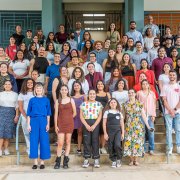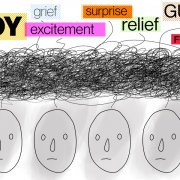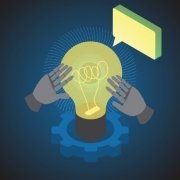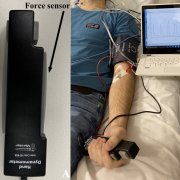June 29, 2023 - 6:00 pm
by Viviana Lupi
Tomaso Poggio is the Head of the Center for Brains, Minds and Machines and is an international pioneer in the field of Artificial Intelligence. On occasion of the workshop "DEEP LEARNING: Theory, Algorithms, and Applications" which took place in Povo - where he had worked at the time of Prof. Luigi Stringa - we asked him some questions to better understand AI and what we have to expect in the near future.
Professor Poggio, you...
June 22, 2023 - 10:15 am
Through her organization, Sprouting, Taylor Baum is empowering teachers to teach coding and computer science in their classrooms and communities.
Kris Brewer | Center for Brains, Minds and Machines
Taylor Baum knows that access is everything. So the fourth-year MIT PhD candidate in the Department of Electrical Engineering and Computer Science has been working in recent years to enhance STEM education in underrepresented communities in Puerto...
June 12, 2023 - 11:30 am
Washington, D.C.– Senate Majority Leader Chuck Schumer (D-NY) today spoke on the Senate floor highlighting this week’s Senators-only briefing on Artificial Intelligence, the first of three upcoming briefings on AI. Below are Senator Schumer’s remarks, which can also be viewed here:
It’ll be another busy week here in the Senate as we confirm more nominees and address pressing issues like AI.
Tomorrow, the Senate will convene the first of three...
June 5, 2023 - 10:45 am
Using insights into how people intuit others’ emotions, researchers have designed a model that approximates this aspect of human social intelligence.
Anne Trafton | MIT News Office
When interacting with another person, you likely spend part of your time trying to anticipate how they will feel about what you’re saying or doing. This task requires a cognitive skill called theory of mind, which helps us to infer other people’s beliefs, desires,...
May 18, 2023 - 2:00 pm
Singleton Auditorium (46-3002)
Dan Yamins, Stanford University
Abstract: The emerging field of NeuroAI has leveraged techniques from artificial intelligence to model brain data. In this talk, I will show that the connection between neuroscience and AI can be fruitful in both directions. Towards "AI driving neuroscience", I will discuss a new candidate...
May 9, 2023 - 4:00 pm
Singleton Auditorium (46-3002)
Eero Simoncelli, Silver Professor; Professor of Neural Science, Mathematics, Data Science and Psychology, NYU
Abstract: Inference problems in machine or biological vision generally rely on knowledge of prior probabilities, such as spectral or sparsity models. In recent years, machine learning has provided dramatic improvements in most of these problems using artificial neural networks, which are typically...
May 4, 2023 - 11:15 am
Despite the eye-catching claim that large AI language models like ChatGPT have achieved theory of mind, some experts find their abilities lackluster.
By Cody Cottier
When you converse with the latest chatbots, it’s easy to feel like they get you. Their deft responses often give an undeniable impression that they’re aware not only of what you say, but of what you think — what your words imply about your mental state.
Theory of Mind
Among...
May 2, 2023 - 4:00 pm
Singleton Auditorium (46-3002)
Jeff Clune, Associate Professor, Computer Science, University of British Columbia; Canada CIFAR AI Chair and...
Abstract: Quality Diversity (QD) algorithms are those that seek to produce a diverse set of high-performing solutions to problems. I will describe them and a number of their positive attributes. I will summarize how they enable robots, after being damaged, to adapt in 1-2 minutes in order to...
April 29, 2023 - 3:00 pm
by Elizabeth Elkind
EXCLUSIVE: House Speaker Kevin McCarthy is launching an effort to get members of Congress educated on artificial intelligence, as the rapidly advancing technology enters more facets of everyday life and pressure to regulate it grows.
Against the backdrop of hours of tense negotiations that ultimately led to House Republicans passing their debt limit bill earlier this week, lawmakers took time this week to hear from two MIT-...
April 25, 2023 - 4:00 pm
Singleton Auditorium (46-3002)
Leila Wehbe, Carnegie Mellon University
Abstract: Aligning neural network representations with brain activity measurements is a promising approach for studying the brain. However, it is not always clear what the ability to predict brain activity from neural network representations entails. In this talk, I will describe a line of work...
April 21, 2023 - 9:30 am
A new study tests an alternative to external stimulation for measuring when subjects lose and regain responsiveness during sedation and anesthesia.
David Orenstein | Picower Institute for Learning and Memory
Studies of consciousness often run into a common conundrum of science — it’s hard to measure a system without the measurement affecting the system. Researchers assessing consciousness, for instance as volunteers receive anesthesia,...
April 11, 2023 - 4:00 pm
Singleton Auditorium (46-3002)
Elizabeth Spelke, Harvard University
Abstract: More than two decades after her death, Eleanor Gibson still may be the best experimental psychologist ever to work in the developmental cognitive sciences, yet her work appears to have been forgotten, or never learned, by many students and investigators today. Here, drawing on three of...
April 4, 2023 - 4:00 pm
Singleton Auditorium (46-3002)
Panelists: Ev Fedorenko, Sydney Levine, Josh Tenenbaum, Phillip Isola, Martin Schrimpf;Moderator: Tommy Poggio
Abstract: Transformer models have been rapidly gaining popularity as they underlie some of the most advanced deep learning systems to date. Despite their apparent successes, several...
Abstract: Transformer models have been rapidly gaining popularity as they underlie some of the most advanced deep learning systems to date. Despite their apparent successes, several...
March 28, 2023 - 4:00 pm
McGovern Reading Room (46-5165)
H. N. Mhaskar - Claremont Graduate University, Claremont.
The fundamental problem of machine learning is often formulated as the problem of function approximation. For example, we have data of the form {(xj,yj)}, where yj is the class label for xj, and we want to approximate the class label as a function of the input x. The standard way for this...
March 27, 2023 - 11:15 am
by Jennifer Michalowski
Artificial intelligence seems to have gotten a lot smarter recently. AI technologies are increasingly integrated into our lives — improving our weather forecasts, finding efficient routes through traffic, personalizing the ads we see and our experiences with social media.
But with the debut of powerful new chatbots like ChatGPT, millions of people have begun interacting with AI tools that seem convincingly human-like....















